June 20, 2024 Did You Know?

Be the first to receive updates and news from MEF by subscribing or liking us on our social media pages: Facebook, Twitter, and LinkedIn!

Be the first to receive updates and news from MEF by subscribing or liking us on our social media pages: Facebook, Twitter, and LinkedIn!
June 2024
| Recently, I heard about the Governor of New York’s decision to indefinitely delay implementation of a plan to charge motorists $15 to enter the core of Manhattan, just weeks before the “congestion pricing” system was set to launch. The plan was originally conceived in an effort to raise funding for public transportation while contributing to the State’s air pollution reduction goals. As expected, critics pointed to a backtracking on environmental goals. Not to be outdone, the State of Virginia, which had previously adopted California’s vehicle emissions standards, including thresholds for the sales of electric vehicles, stated they would no longer follow those standards, opting for less restrictive federal standards. The Virginia governor said it was unfair to tell people what kind of car they should buy, especially with the cost of EV’s being higher than gas-powered vehicles. We’ve recently experienced similar actions from public entities locally as it relates to the ban on natural gas hookups in new residential and commercial construction. The City of Berkeley, who pioneered the legislation by being the first city to adopt such a ban, was also the first city to repeal its ban. The city faced extreme opposition, including from the California Restaurant Association, due to the likelihood of cost increases. Recently, Sunnyvale, Cupertino, Contra Costa County, San Mateo County and San Luis Obispo suspended their gas bans. Here in Marin, the San Rafael City Council also voted to repeal its ban, put in place in 2022. Word is Corte Madera, San Anselmo, and Fairfax are weighing their options to follow suit. These actions all took place in the past couple of months, prompting the questions of why now and what went wrong? Let’s start with the “why now?”. It’s no secret that the last few years have put the financial squeeze on consumers via price inflation and that cost of living has become one of the hot button political issues in this election year. In the case of New York and Virginia, these decisions were made by governors, Democrat and Republican respectively, and both leaders cited the issue of cost burdens to their constituents, namely middle-class residents who would find them onerous and costly. Both decisions are also a commentary on how environmental goals pursued by the state may not be acceptable to the public, i.e. a cost that is too high. High cost was also cited by the California Restaurant Association in their suit against the City of Berkeley’s ban, although the decision by the 9th Circuit Court in April 2023 said local policies can’t limit energy use for products regulated through the federal Energy Policy and Conservation Act, which includes appliances like gas stoves. The threat of costly legal action might just be more than local jurisdictions are willing to put up with for a move that was seen mostly to support climate action goals. The decision does allow cities to try to discourage use of natural gas (vs. electrification), but it’s not yet clear where the public lies on this issue. As far as the question of “what went wrong?”, well, aside from the legal challenges these policies resulted in, there may have been an underestimation of the appetite for citizens to support climate-environmental policies if they hit too close to the pocketbook. Make no mistake, a place like Marin County is a leader in the environmental space and most residents would accept higher costs to meet climate goals and environmental initiatives. But we need to be aware that businesses and consumers will weigh those policies against more practical variables, such as convenience and cost. I know many Marin County residents would say addressing the climate is “priceless” but that is not bearing out locally or nationally, at least not recently. |
| Mike Blakeley, CEO Marin Economic Forum |
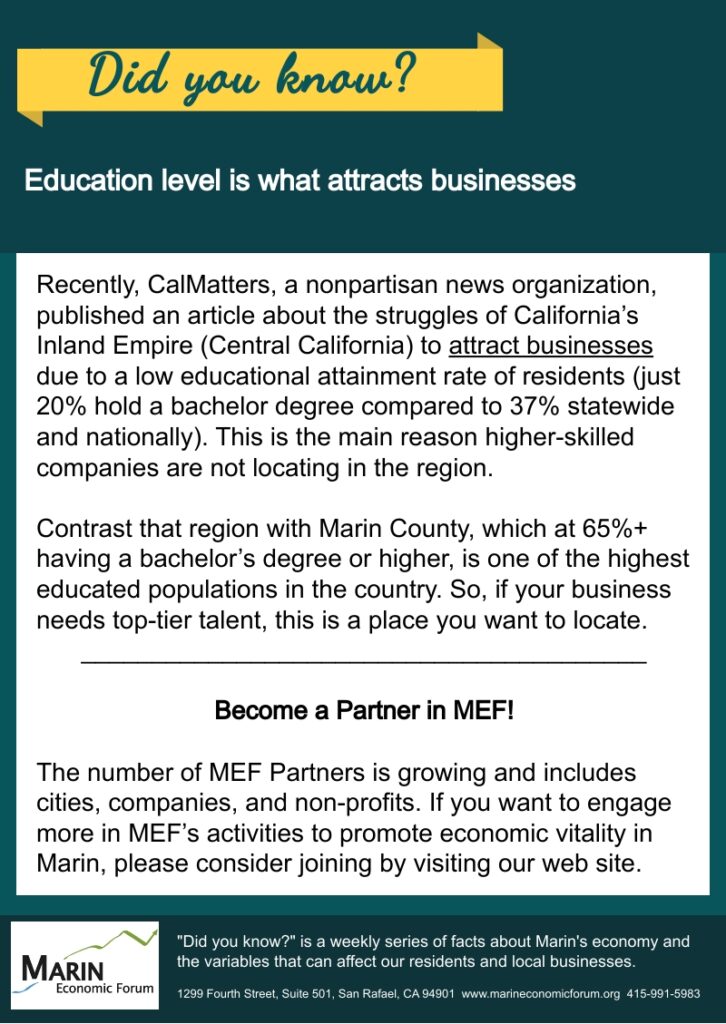
Be the first to receive updates and news from MEF by subscribing or liking us on our social media pages: Facebook, Twitter, and LinkedIn!

Be the first to receive updates and news from MEF by subscribing or liking us on our social media pages: Facebook, Twitter, and LinkedIn!
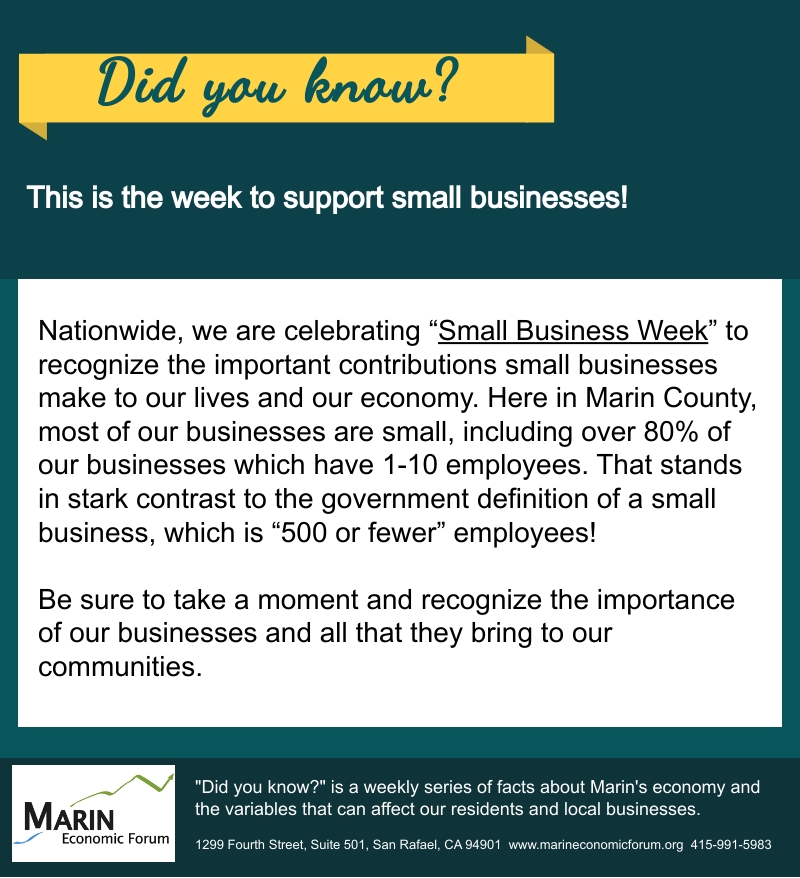
Be the first to receive updates and news from MEF by subscribing or liking us on our social media pages: Facebook, Twitter, and LinkedIn!
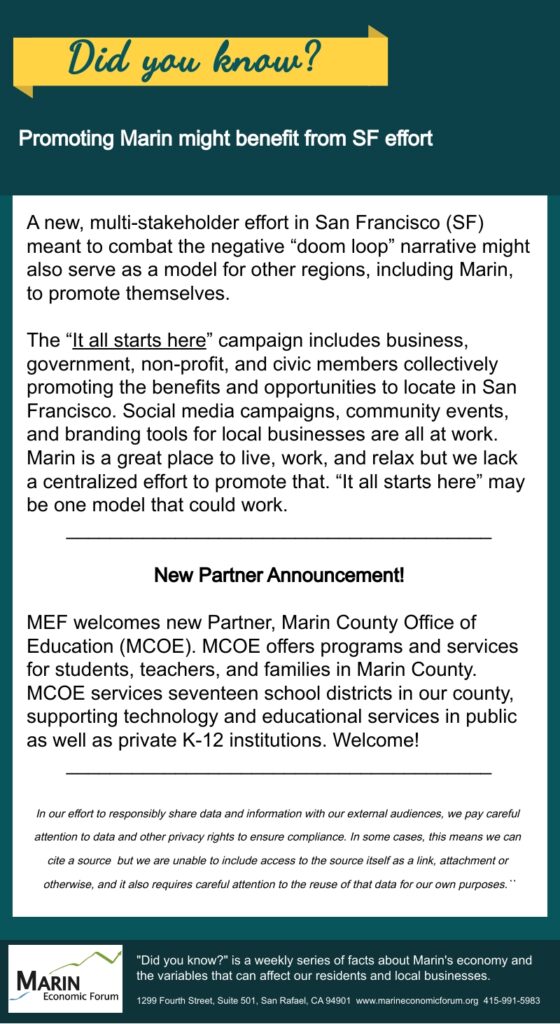
Be the first to receive updates and news from MEF by subscribing or liking us on our social media pages: Facebook, Twitter, and LinkedIn!
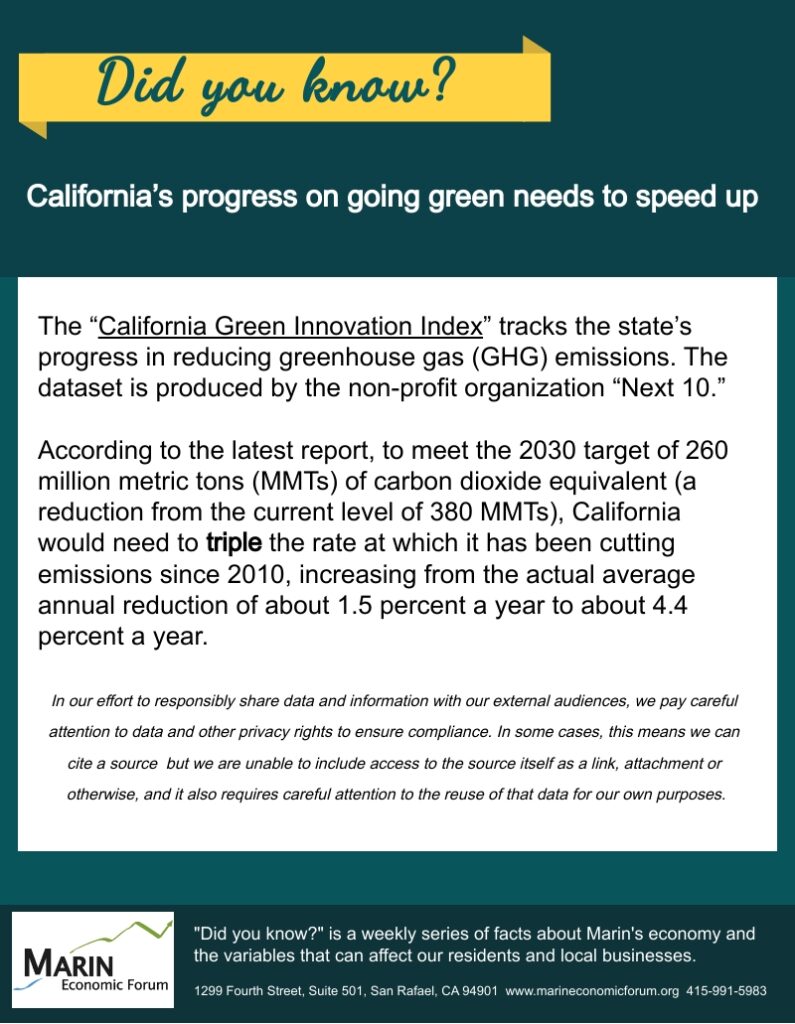
Be the first to receive updates and news from MEF by subscribing or liking us on our social media pages: Facebook, Twitter, and LinkedIn!
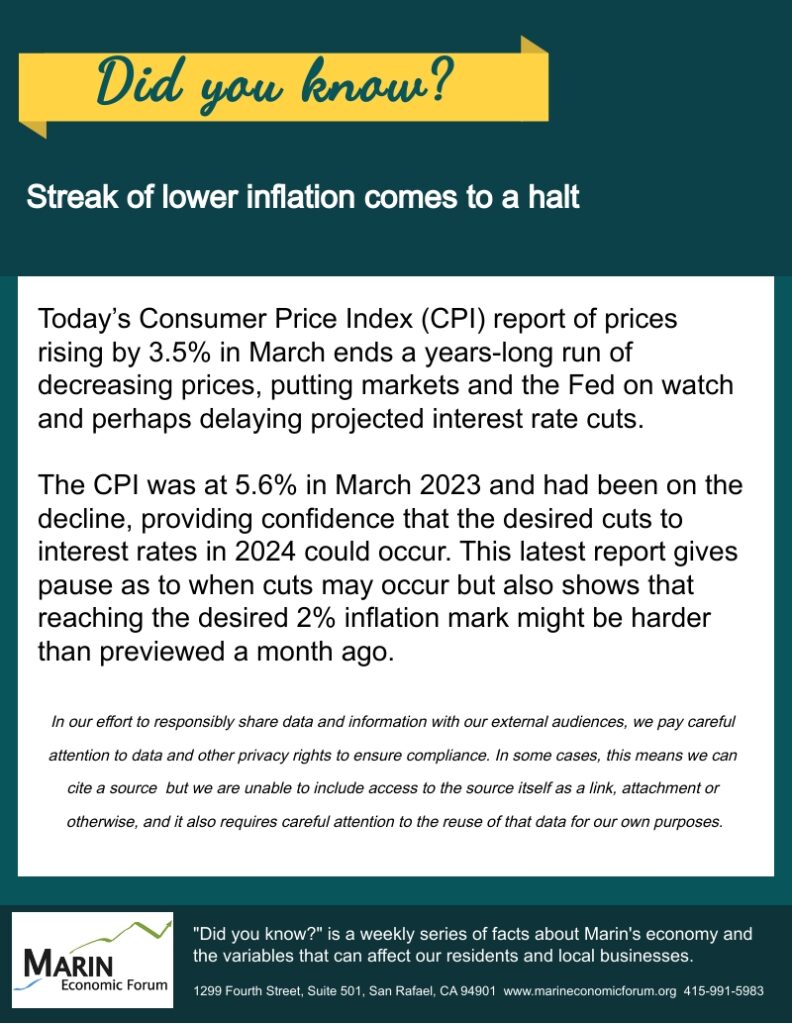
Be the first to receive updates and news from MEF by subscribing or liking us on our social media pages: Facebook, Twitter, and LinkedIn!
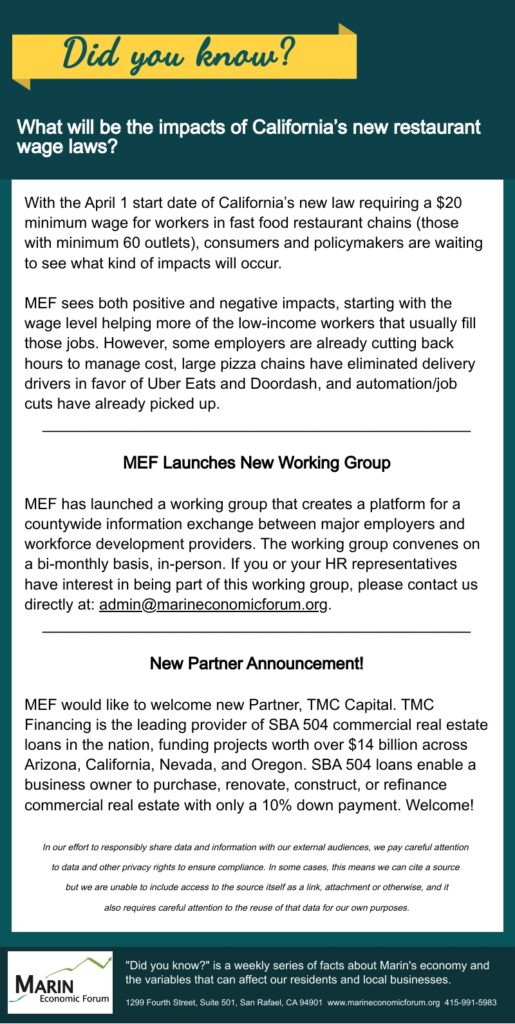
Be the first to receive updates and news from MEF by subscribing or liking us on our social media pages: Facebook, Twitter, and LinkedIn!
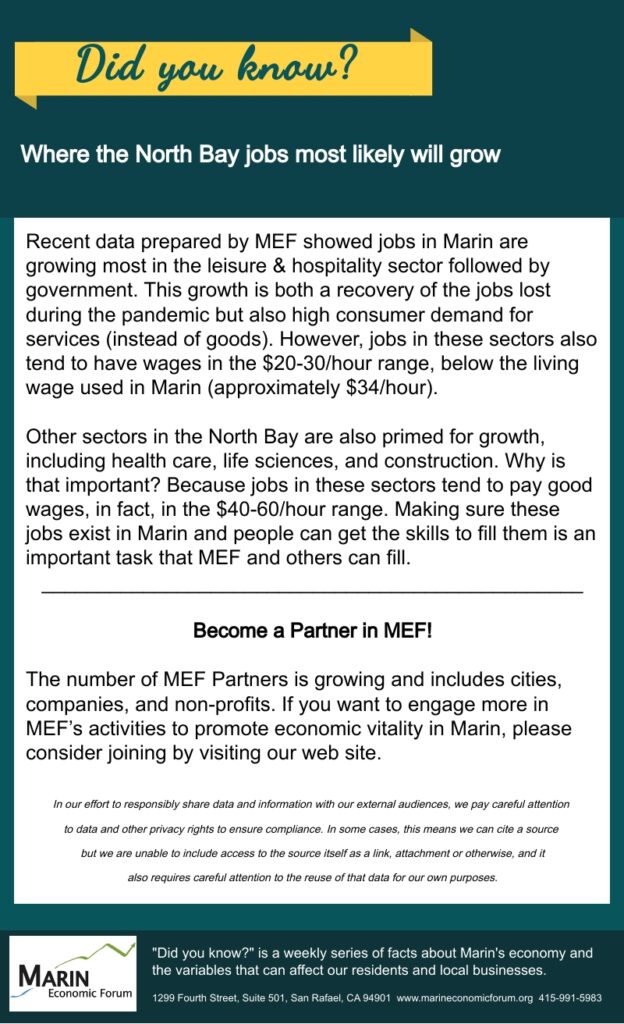
Be the first to receive updates and news from MEF by subscribing or liking us on our social media pages: Facebook, Twitter, and LinkedIn!